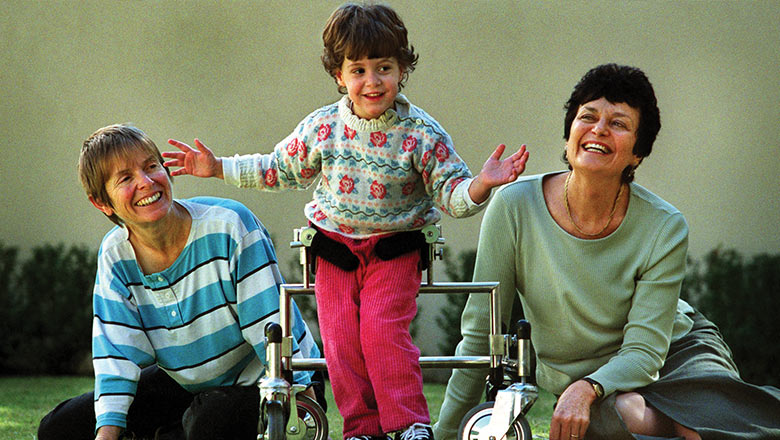Search
Research
Risk of Developmental Disorders in Children of Immigrant Mothers: A Population-Based Data Linkage EvaluationIncreased risk of autism spectrum disorder with intellectual disability and cerebral palsy with intellectual disability for mothers of some foreign-born groups
Research
Predicting respiratory hospital admissions in young people with cerebral palsy: A 3-year longitudinal study using linked dataEarly identification of oropharyngeal dysphagia and the management of seizures may help prevent serious respiratory illness
Research
A comparison of activity, participation and quality of life in children with and without spastic diplegia cerebral palsyNew PageThe aim of this study wa to measure activity, participation and QoL in children with CP and to determine how these differ from a comparable group of...
Research
The placenta and neurologic and psychiatric outcomes in the child: Study design mattersMuch information exists about functions of the human placenta and about potential mechanisms by which the placenta may influence human health or disease...

News & Events
Changing the focus of cerebral palsyCerebral palsy is not only the result of birth trauma and the lack of oxygen supply during delivery.
We know from research that the risk of death from respiratory disease is 14 times higher for adults with cerebral palsy than for other adults. Respiratory disease is the most common cause of premature death in children and young people with cerebral palsy and one of the main causes of hospitalisation.
Research
Participation predictors for leisure-time physical activity intervention in children with cerebral palsyTo determine the predictors of magnitude of change in response to a participation-focused leisure-time physical activity intervention in children with cerebral palsy (CP) using the ParticiPAte CP protocol.
Research
Botulinum toxin and surgical intervention in children and adolescents with cerebral palsy: who, when and why do we treat?This audit aimed to increase understanding of the long-term outcomes of evidence-based medical and surgical interventions to improve gross motor function in children and adolescents with Cerebral Palsy.
Research
Congenital anomalies in children with postneonatally acquired cerebral palsy: an international data linkage studyTo describe the major congenital anomalies present in children with postneonatally acquired cerebral palsy (CP), and to compare clinical outcomes and cause of postneonatally acquired CP between children with and without anomalies.
Research
Measuring skeletal muscle morphology and architecture with imaging modalities in children with cerebral palsy: a scoping reviewTo investigate the use of ultrasound and magnetic resonance imaging (MRI) methodologies to assess muscle morphology and architecture in children with cerebral palsy (CP).
